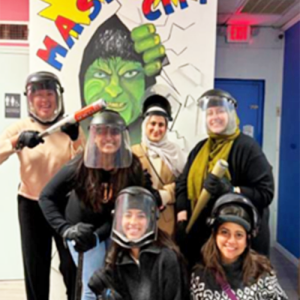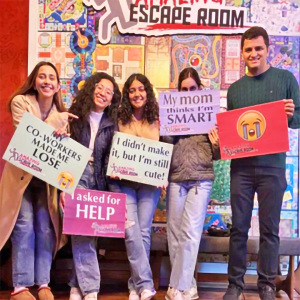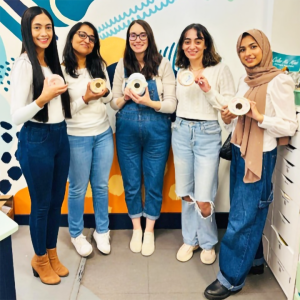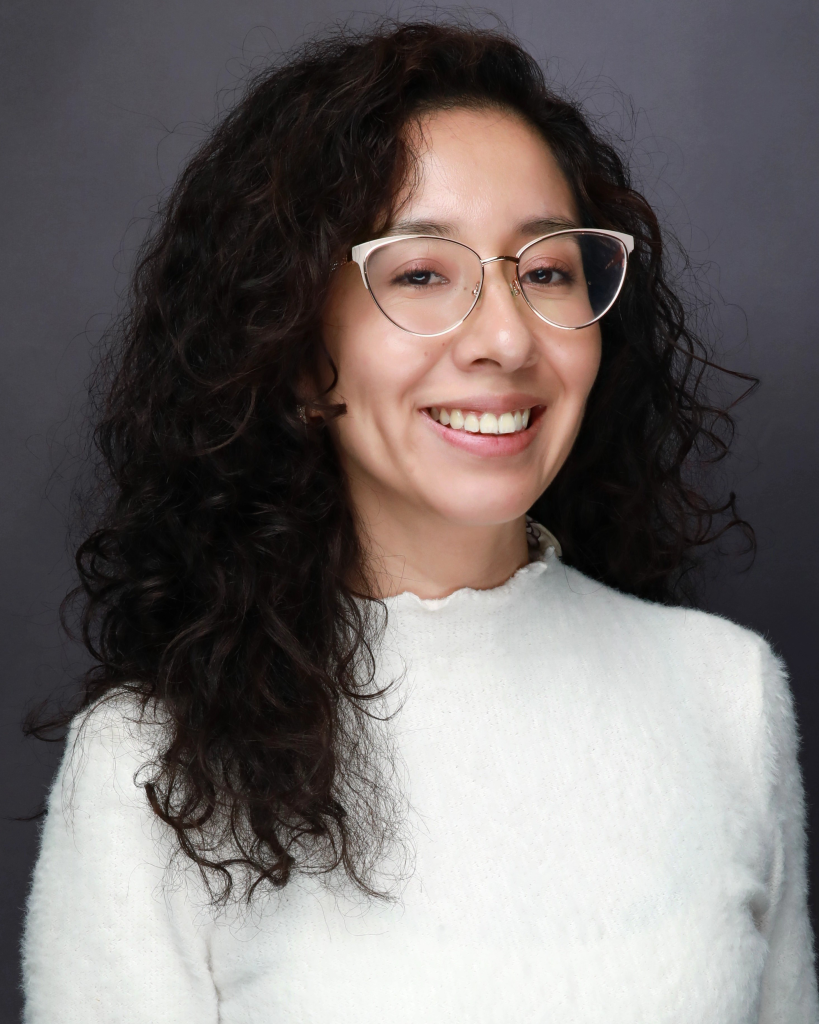 By Dr. Diana Carolina Largo Luna
By Dr. Diana Carolina Largo Luna
Recipient of the 2024 Grant Opportunity for J-1 Physicians: Well-being Projects Supporting Foreign National Physicians
“Just ask. The worst people can say is ‘no’; the best might amaze you.”
This is what my dad used to tell me, again and again, when I was growing up in “the country at the center of the world” —Ecuador. This simple yet powerful advice became my guiding mantra as I embarked on my journey to pursue medical training in the United States. In moments of doubt, I recalled his words: “Just ask; the answer might amaze you.” Whenever I was thinking about another step in my career, whether it was requesting clinical experience in an unfamiliar city, applying for the Match, or deciding to submit a proposal for the Intealth 2024 Well-being Grant Opportunity, my father reminded me that asking for things is a strength, not a weakness.
In the early days of my residency at Monmouth Medical Center, when my accent felt extra thick after a long shift and the imposter syndrome sat on my shoulder while I was presenting cases during morning rounds, I leaned on my support networks, both back home and in the United States. As a member of this program, largely made up of IMGs, I saw firsthand how many of us shared the same worries: Am I being understood? Am I good enough? Do I belong here? Is it worth it?
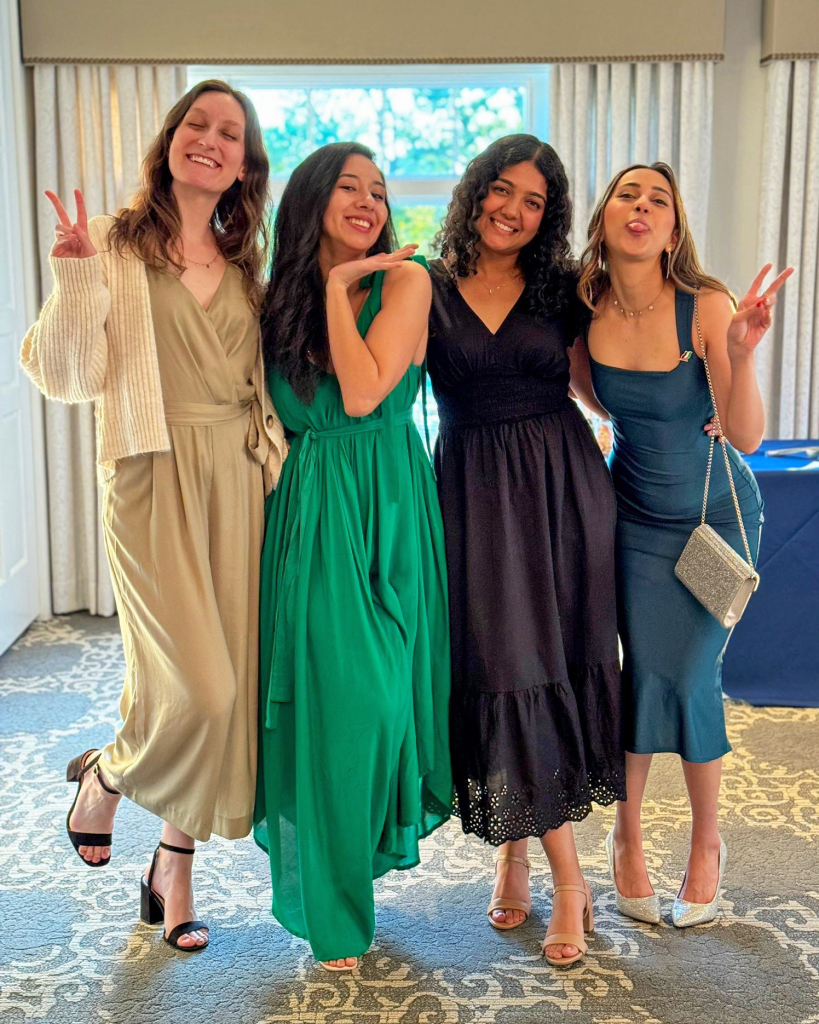
Then one day, I found a hidden gem at my institution: A leadership team in the Pediatric Residency Program committed to resident wellness. In my second year, I joined the wellness committee, which consisted of three other residents from India, Pakistan, and Turkey who share the same goal of making long-lasting changes at our program that will positively impact the well-being of residents now and in the future. After we saw the opportunity to apply for the Intealth Well-being Grant, we envisioned the WISH project: Wellness Initiative for Supporting Health for Foreign Medical Graduates in Pediatrics. Even during the final step of applying for the grant, the imposter syndrome made me hesitate one more time. Still, my mentor and co-residents stood behind me and supported me. When we learned our proposal had been accepted, I felt deep gratitude to my team for taking the time to write the proposal and to our mentor for supporting and showing excitement for our proposal every step of the way. I felt validated that, after hours of hard work on this proposal, we would be able to accomplish all those ideas that, until that point, had only existed in a PDF document. Finally, I felt hope and extreme joy for me, my team, and my residency program. We asked, and the answer amazed us.
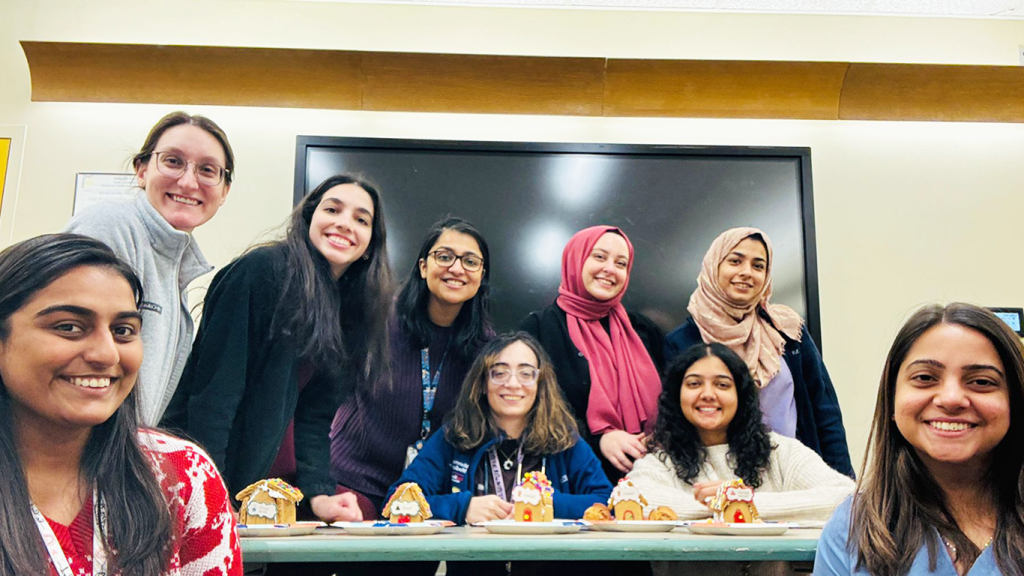
After obtaining the grant, the wellness committee introduced the WISH project to the program during our October wellness morning. We conducted a validated burnout assessment, which would be repeated at the midpoint and end of the project. We put on workshops such as “How to Deal with Impostor Syndrome,” “Sleep Hygiene,” and “Grieving in Pediatrics,” which provided residents with practical strategies to use if facing these issues during their residency. We continued to foster our monthly wellness activity, like pumpkin painting for Halloween and gingerbread house building for the winter holidays. We maintained a well-stocked “fuel station” of snacks for residents on inpatient service. We hosted a surprise celebration party for our senior residents following their fellowship match announcements.
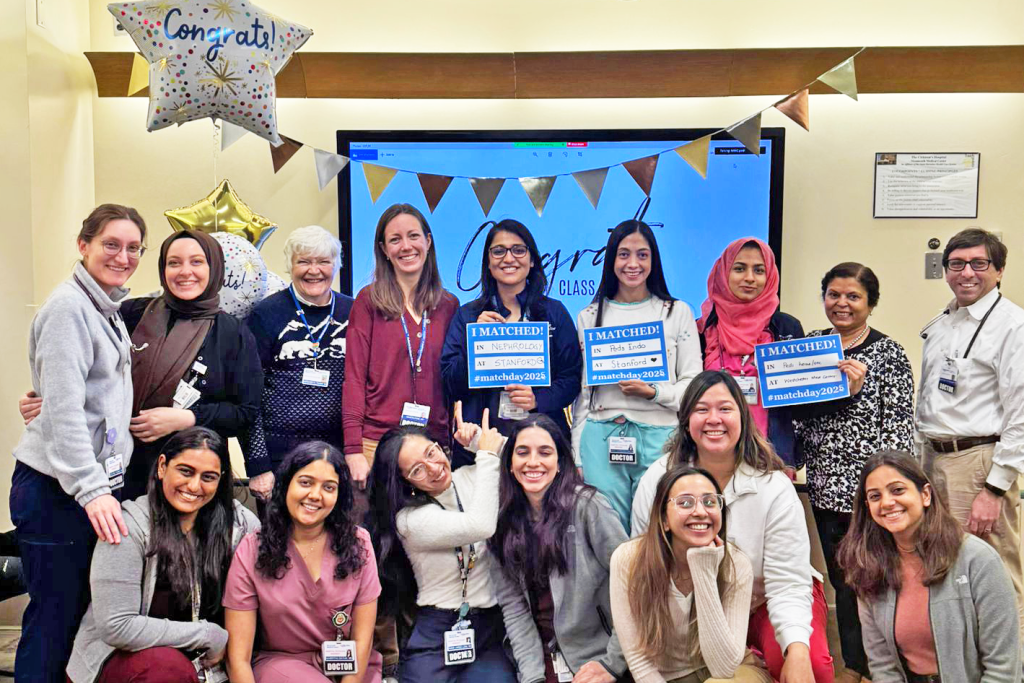
By year’s end, we had implemented a structured wellness curriculum that included monthly events, weekly mental health resource emails, three class retreats, improved feedback loops, mental health resources for all residents, and a weekly leadership and post-residency development series. We ensured all wellness activities were protected from clinical responsibilities, thereby securing the full engagement of residents. The annual departmental retreat provided a final opportunity to reflect, elect a new wellness committee, and ensure this initiative will continue on after we have left the program.
The workshops on imposter syndrome and grieving in pediatrics, in my opinion, were the most impactful aspect of our project. These topics, which carry a heavy emotional burden, are rarely addressed in residency programs. Creating a safe space to talk about grief and self-doubt is important in our profession. These conversations allow us to address and unpack the complicated emotions that many in residency training experience but few acknowledge. We came away from these workshops with an understanding that vulnerability is part of being human, and also part of being a good pediatrician. Another high-impact intervention was our class-specific retreats, which allowed members of each PGY level to engage in meaningful, non-clinical bonding activities. Every resident had a protected day off from clinical duties to engage in the planned wellness activities.
Through this experience, I’ve grown not only as a resident but as a leader. My personal goal is to pursue a career in Pediatric Infectious Diseases and become a leader in global health. The lessons I learned from this project about advocacy and team building will serve me well in addressing healthcare disparities on a broader scale. I’m proud of what we have accomplished so far and the strong foundation that we have built for the next wellness committee. In the future, we hope to continue to increase institutional support and resources, which will be essential to maintaining and growing the culture of wellness at our program.
If you’re a GME administrator looking to build a culture of wellness at your program, I would advise you to listen to what your residents have to say. Ask them what wellness means to them. Assess their level of burnout with validated tools you can use to measure their health and well-being over time. Start with small but consistent plans. Give your residents protected time off for wellness activities.
If you’re an IMG wondering whether to take the leap and apply for the next cycle of the Intealth Well-being Grant Opportunity, I’ll repeat what my father told me: “Just ask—the answer might amaze you.”
The Intealth Well-being Grant Opportunity awards grants of up to $5,000 to J-1 physician-led projects supporting the well-being of foreign national physicians at their host institutions. In 2024, Intealth announced the winning projects of its second annual Well-being Grant Opportunity for J-1 Physicians: Well-being Projects Supporting Foreign National Physicians. The grants were awarded to five projects. This entry is about one of those projects. For more information on this initiative and details about this project, click here.

